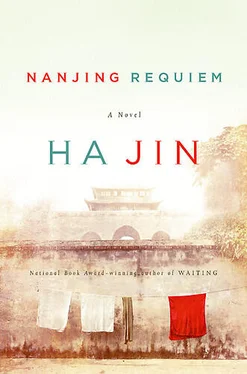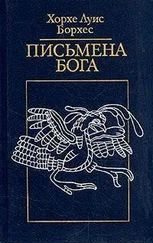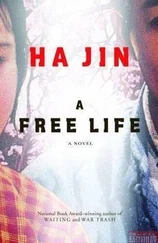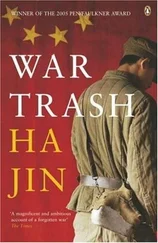General Asaka, the button-nosed prince wearing a patch of mustache that made him look like he had a harelip, received Sperling and spat in his face. He drew his sword halfway and barked, “Tell the Chinese that they have brought death on themselves. It’s too late for them to employ a peace broker like you. If they want peace, hand Sheng-chi Tang over to me first.”
“Please inform General Matsui of our request,” Sperling pleaded again.
“I am the commander here. Tell Sheng-chi Tang that we won’t spare even a chicken or dog in Nanjing.”
So Sperling returned to report back to General Tang. The emissary was in such a hurry that he sprained his ankle and had to use a stick to walk. By this time, some of the defending troops must have heard of the withdrawal order and had begun pulling out, but many units were isolated, fighting blindly with their flanks open, doomed to annihilation.
A prolonged silence followed Rabe’s account of the failed effort for a cease-fire. I wanted to weep but took hold of myself, covering my face with one hand. I could hardly breathe.
“An army in flight collapses like a landslide,” Searle said to Minnie, using the Chinese idiom.
“Chiang Kai-shek should be held accountable for this catastrophe,” she huffed.
“Yes, he should be court-martialed,” said Sperling.
“The problem is that he’s the judge in his own court,” Rabe added in a bantering tone, fingering the strap of his binoculars. In spite of his attempt at levity, he sounded grim.
Searle had to leave for the temporary hospital established the week before at the Ministry of Foreign Affairs. The city government had given the International Red Cross Committee, of which both Searle and Minnie were members, fifty thousand yuan for setting up hospitals, but even with such generous funding there was no way to staff them. Searle had yet to figure out how to get hold of some medical personnel and couldn’t stop grumbling about the Chinese doctors who had fled. At the moment only one surgeon, Robert Wilson, a recent graduate of Harvard Medical School, remained in town, and he’d been working around the clock at the Nanjing University Hospital. Minnie and I went out with Searle and then headed for our jeep. The two of us got in the car and pulled onto Shanghai Road, driving northeast.
The moment we turned left onto Zhongshan Road, which led to Yijiang Gate, the route to Hsia Gwan and the wharves, we were struck by a horrific sight. The entire city was fleeing toward the waterside. Every street we passed was strewn with uniforms shed by our soldiers. Both sides of the road were lined with burned vehicles, artillery pieces accompanied by boxes of shells, and heavy machine guns still tied to dead donkeys. A pack of mules stood loaded with parts of an antiaircraft gun and ammunition, too confused to move. A roan horse, still saddled, was neighing toward the clouds as though it were being attacked by some invisible beasts of prey. The soldiers were swarming north, mostly empty-handed but some still wearing enamel rice bowls on their belts. The street was littered with helmets, rifles, pistols, canteens, Czech machine guns, knapsacks, swords, grenades, overcoats, boots, small mortars, flamethrowers, short spades, and pickaxes. Beside a brass bugle lay a pig’s head, its snout pointing skyward but both ears missing. As we were approaching the International Club, the street was so jammed with overturned automobiles, three-wheeled motorcycles, animal-drawn carts, and electric poles and tangled wires that it was impossible to drive farther. So we decided to walk. We veered right, pulled into the compound of the German embassy, and parked our jeep there with permission from Georg Rosen, the hot-tempered secretary of political affairs and one of the three German diplomats remaining behind. Unlike his colleagues, Rosen was half Jewish and not allowed to wear a swastika.
Minnie and I headed north on foot to see whether our army still controlled its route of retreat. The Metropolitan Hotel appeared, swathed in smoke and flames. The instant we passed it, a squad of soldiers ran up to us, still bearing arms. The nine men, all wearing straw sandals, stopped in front of us, dropped their rifles, and, with hands clasped before their chests, begged Minnie to accept their capitulation as though she were a conqueror as well. Their leader, his face tear-stained, pleaded with Minnie, “Auntie, please save us!”
That flustered her, and I intervened, telling her, “They must think every foreigner has access to sanctuary. Poor fellows, all abandoned by their officers.” As I was speaking, tears streamed down my face. I was so sad that I doubled over sobbing.
Patting my head, Minnie said to the men in Mandarin, “We are not entitled to accept your weapons. If you want to stay in town, go to the Safety Zone, where you can find protection.”
The men waggled their heads as if they were too frightened to move back in that direction. They did an about-face and ran away, leaving their guns behind. Minnie picked up a rifle, which was quite new; its stock bore these characters: “This embodies your people’s blood and sweat.” Those words were instructions from the generalissimo, engraved on many weapons in the Nationalist army. Minnie, her thick eyebrows knotted, dropped the gun and sighed.
Still wiping my eyes, I told her, “In this country a peasant’s lifetime’s earnings can buy only a rifle. Imagine all the equipment they have abandoned — what a horrendous waste.”
“Yes. Lewis said he had seen some heavy cannons left on the outskirts of the city that had never been fired.”
We continued toward the gate. It was gut-wrenching to see the entire area destroyed, most of the buildings and houses burned down and some still smoldering. After passing the British embassy, with Yijiang Gate already in view, we were too exhausted to push farther and realized that it would be impossible to get beyond the city wall to see what it was like on the riverside, so we stopped. In the distance, on both sides of the gate, blocked by sandbags and machine guns, strings of men were scaling the fifty-foot-high wall with ropes, fire hoses, and connected ladders. The top of the wall and the two-story pavilion on it were dotted and blurred against the smoky sunset by the scramblers. From the way the crowds were moving, we could tell that the piers must still be in Chinese hands. We turned back and headed for the German embassy.
Dusk was falling and a few bats were flitting around, zigzagging like ghostly butterflies. We had to slog against the crowds; Minnie was ahead of me, jostling and shouting, “Let us pass! Let us pass!” People were so desperate that some cursed us for moving against the human torrents. Suddenly automobiles began honking and guards, waving Mauser pistols but dressed in civvies, shouted, “Make way! Make way!”
Those unable to move fast enough were shoved aside by the guards. Following them came two long cars. “Look, General Tang!” Minnie told me, pointing at the lean-faced man in the back of the second Buick. The general hung his head as if nodding off.
As we were observing the commander of the Nanjing defense, a half brick hit his car, followed by a voice yelling, “Bastard, fuck your ancestors up to eight generations!”
The brick left only a powdery spot on the side window, and without a word the guards glared at the swearing man, then went ahead to clear the obstacles. A few minutes later we lost sight of the two sedans after they made a left turn. General Tang must have had his own way to cross the river when it was dark.
ARTILLERY POUNDED the southern and western parts of the city throughout the night of December 12. After two a.m. I returned to the inner room in the president’s office to steal a moment of sleep. Bursts of machine-gun fire broke out now and again. With my coat on, I dozed off in an armchair. In a semiconscious state, I saw Chinese soldiers scrambling onto junks, sampans, and rafts on the Yangtze while Japanese planes were strafing them. Some of the boats caught fire and some were overturned, dumping thousands of men into the roiling water. Some of them were dog-paddling and some clinging to boards and poles, while others sank, screaming for help.
Читать дальше











